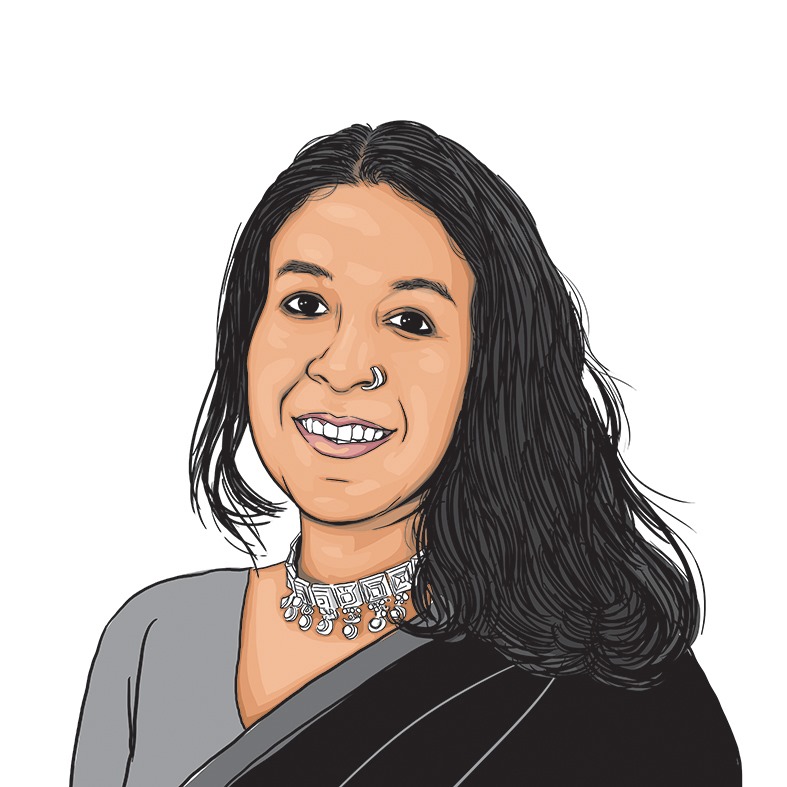Opinion Men’s mental health matters. More so, as patriarchy doesn’t let them speak
The month of June, observed as Men’s Mental Health Awareness month, brings into focus a grim reality, as the burden of patriarchy ensures that men feel a stigma in talking about their challenges, especially around mental health
 The common patriarchal adage of “men don’t cry” further makes it tougher for men to speak up and seek help. Even when they do, their own patriarchal conditioning might make it harder for them to speak to their partners about it, and they may end up suppressing the suffering.
The common patriarchal adage of “men don’t cry” further makes it tougher for men to speak up and seek help. Even when they do, their own patriarchal conditioning might make it harder for them to speak to their partners about it, and they may end up suppressing the suffering. Almost two years ago, I lost my father, and shortly after that, I was sent to a challenging posting. As a very close-knit family, I understood the importance of my emotional and physical presence at home. Citing these grounds, I requested a less challenging posting. I wasn’t afraid of the challenge, but my priorities were clear. My request was declined, and I was told that being very busy would help me channelise my grief better, for I would “not cry often, for life has to go on.”
I did not have the emotional bandwidth to respond further. I gathered myself to change my clock rather than challenge it. Rather than burning the midnight oil in the office, as night fell and the pit in my stomach deepened, I started watching sunrises from my office window. For the morning heralded hope, and back home, too, mornings witnessed fewer tears.
But unfortunately, a few months later, a friend lost his father, and he was offered support — his leave from work was approved — given that “now he is also the head of the family.” This contrast highlights the need to further explore the gendered dimensions of mental health.
June is observed as Men’s Mental Health Awareness month, and according to some estimates, men account for 75 per cent of all self-harm fatalities globally, yet they are 50 per cent less likely to seek mental health treatment. Further, men are also overrepresented in suicide statistics, especially those aged 20–24, who experience suicide rates 3.7 times higher than their female counterparts.
The month of June brings into focus this grim reality, as the burden of patriarchy ensures that men feel a stigma in talking about their challenges, especially around mental health. The common patriarchal adage of “men don’t cry” further makes it tougher for men to speak up and seek help. Even when they do, their own patriarchal conditioning might make it harder for them to speak to their partners about it, and they may end up suppressing the suffering.
If patriarchy made my friend the head of his household, the same patriarchy baulks when I proudly say that my household never had a head. We were four poles who were equal, and we still do not feel the need to nominate one, despite now being an all-woman household.
While we now realise the challenges in helping men speak up, I wonder whether it is time for us to look at what lies on the other side of crossing this emotional threshold. When men speak up, the threshold is crossed, and while the subliminal patriarchy may inhibit them from seeking help or treatment, what happens to the entire spectrum when they speak up? For any gender, speaking up on their own mental health, the first reaction is dismissal, labelling it an exaggerated emotional response, calling it a reaction to a life event. If they persist, it is presumed they may be seeking attention or conjuring an excuse from not being able to compete as equals. If they still seek recognition of their challenges, traumas or difficulties, it is assumed that they have something suspicious going on within them. It, unfortunately, makes them unattractive as a partner, unwanted as a friend, unacceptable as a colleague, unfit as a human being — period.
For women, it is assumed that they might be able to emote better, for she has grown up seeing her mother, sisters, and female friends cry their hearts out, yet she, too, often feels unable to seek help. Because she won’t be labelled the strong one, but the strange one. For men, speaking up is only the beginning of the uphill climb that lies ahead.
I have not yet touched upon LGBTQ+ statistics, which paint a picture that we might find harder to digest, because we all might find ourselves guilty of not being able to understand others.
We are encouraging everyone to speak up, but what we still owe is a shared responsibility. When we teach our kids that gender is a social construct, unlike sex, let’s also teach them that when we talk about health, community, communication, and emotional expression, we are all the same — and all it takes is a kind heart, not a sharp mind, to listen and show up.
To circle back, when I was told about handling my grief, and my friend about his responsibility, it was patriarchy talking, even in grief.
The author is an IRS officer. Views expressed are personal





